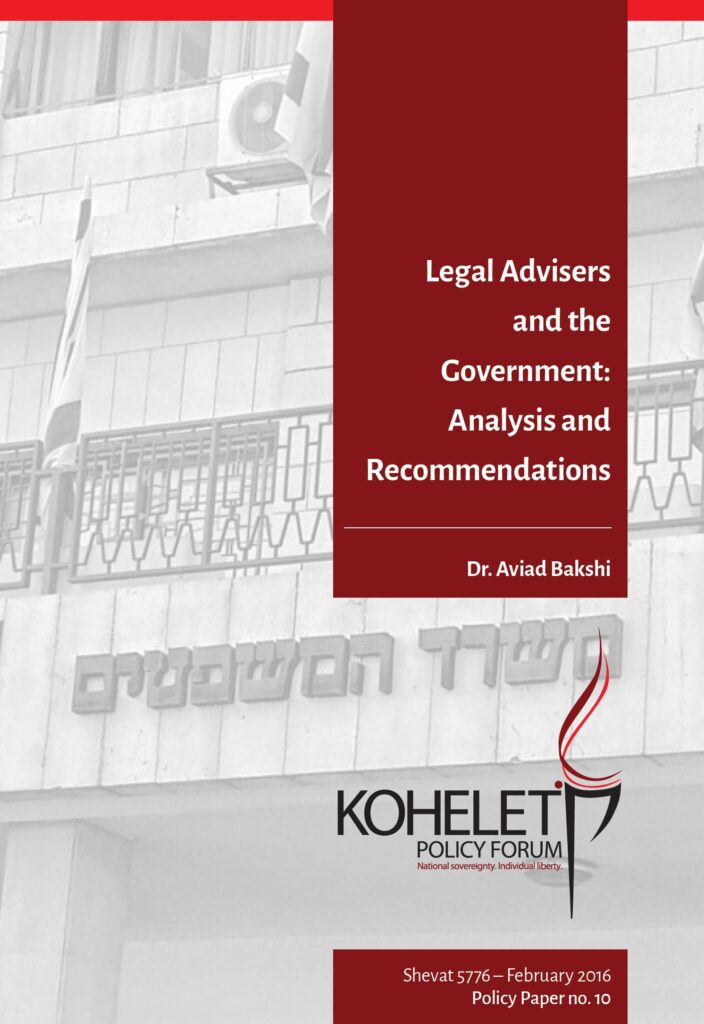The Attorney General of Israel (AGI) holds exceptional powers in comparison to the government ministers in two main fields: counseling, where the legal opinion of the AGI is seen as binding on the government; and representation, where the AGI sees himself authorized to impose his opinion on the government and present it before the court on behalf of the government, even if this opinion is opposed to the actual opinion of the government.
This paper draws a comparison between the AGI role as a legal advisor on non-criminal matters in Israel
and legal advisers in the United States, Canada, Britain, and Germany, where an equivalent to the exceptional powers held by the AGI does not exist. The fact that the AGI is not a political appointee, as opposed to the practice in the rest of the examined countries, as well as the unusual subordination of legal advisers from other government ministries to the AGI, further intensifies the gap between Israel and the examined countries with regards to the way government agencies relate to their legal affairs.
Policy Paper: Legal Advisers and the Government




